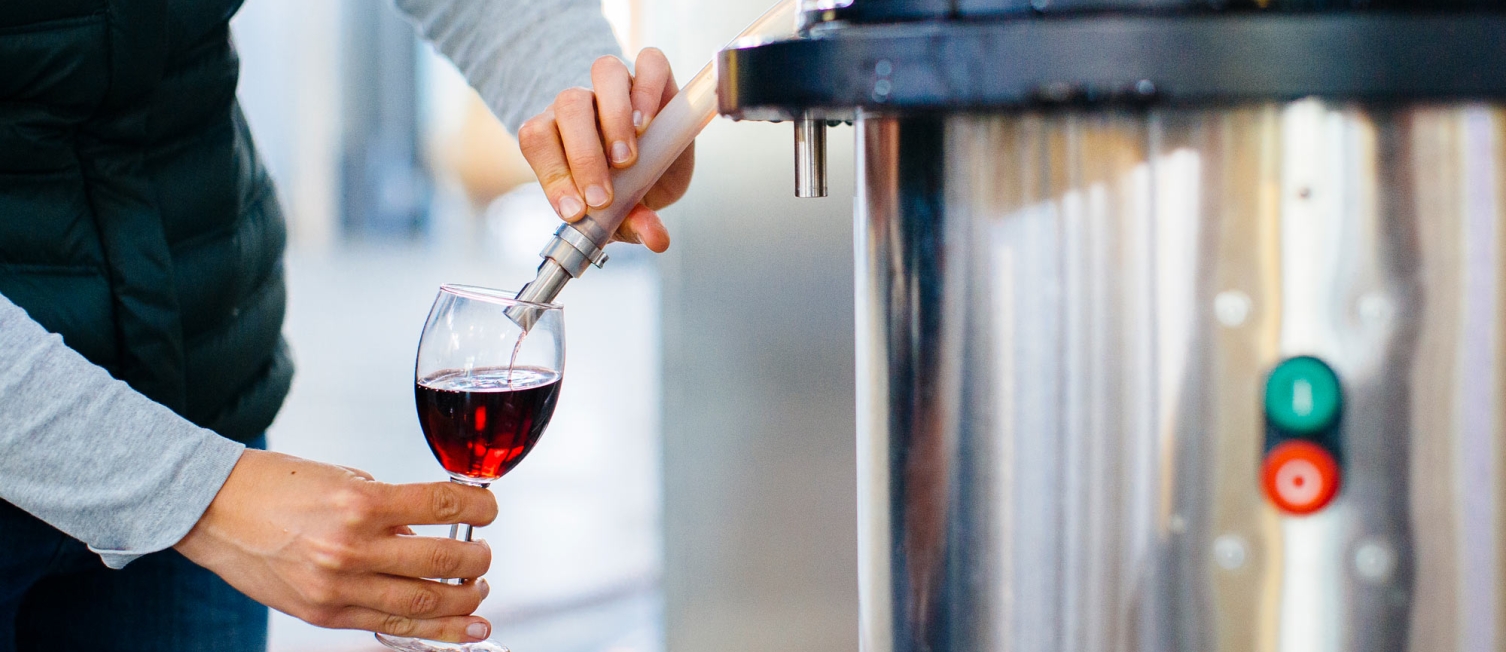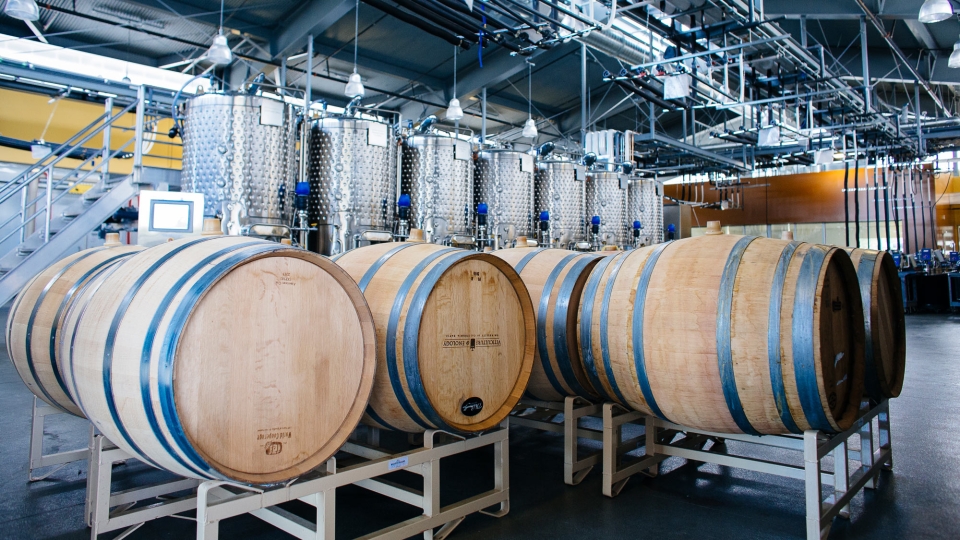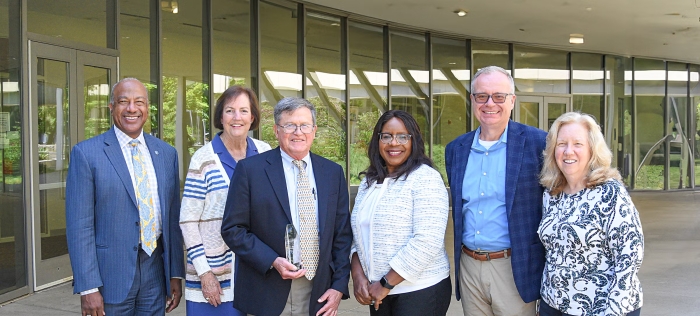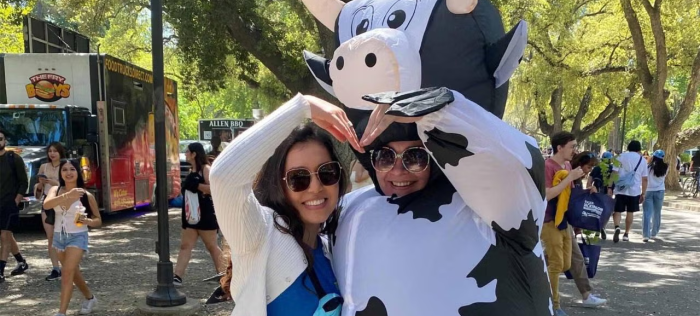
$4 Million Endowment Bolsters UC Davis Viticulture and Enology
July 26, 2022 — The University of California, Davis, Department of Viticulture and Enology has received a $4 million endowment that will provide support in perpetuity for the kind of research and education that has made the department world-renowned in its field.
The endowment, given anonymously, will fund unique projects that use and further develop analytical tools, advanced technologies and techniques, and equipment.
“We hope the bulk of this gift will go toward supporting graduate student education to help them become leaders nationally and internationally,” said David Block, professor and chair of the Department of Viticulture and Enology and professor in the Department of Chemical Engineering.
“We are very thankful for this donor for sharing and supporting our vision for the department and allowing our students, who are already in very high demand, to leave UC Davis with a toolbox of how to be creative problem solvers.”
The Department of Viticulture and Enology is addressing a number of major threats to the wine industry, including climate change, disease, and scarce water resources. For improved vineyard resilience, the department is further developing high-quality disease-resistant grapes, predictive modeling, and remote sensors. Additionally, technologies that aid in carbon capture and water reduction will advance sustainability in wine production.
“This generous gift will help support our goals to better integrate innovation and technology into our teaching and research efforts,” said Helene Dillard, dean of the College of Agricultural and Environmental Sciences. “We are grateful for the long-lasting impact it will have on the Department of Viticulture and Enology.”
Solid foundation
UC Davis’ expertise in winemaking and technological innovations in agriculture can be seen around the world, said Shaun Keister, vice chancellor of Development and Alumni Relations and president of the UC Davis Foundation. “With philanthropy, we’re bringing the two together to solve challenges in industry and train future leaders in the field.”
Philanthropic support has created a solid foundation for the Department of Viticulture and Enology, which boasts the world’s most advanced and sustainable winery in such facilities as the Robert Mondavi Institute for Wine and Food Science and the Jess S. Jackson Sustainable Winery Building.

“Funding for wine-related research is very limited in California and even more restricted at the federal level,” said Ben Montpetit, associate professor and vice chair of the Department of Viticulture and Enology. “We’ve been extremely fortunate as a department to have philanthropic gifts that allow us to build a world-class research program.”
Montpetit and his lab study the microbiology of wine fermentations. Other researchers in the department are studying the impact of wildfire smoke on grapes and wine, optimizing grapevine performance under water-stressed conditions, predicting how grapes will respond to a changing climate, and engineering technologies to protect the environment.
“Our department is looking to the use of satellite data, computer modeling, sensors and robots, plus many other types of chemical and biological data, to provide the information and technologies industry needs in the vineyard and winery both now and in the future,” Montpetit said.
Advanced research methods contribute to the department’s top rankings, while partnerships with industry provide enriching opportunities and connections for students — which may explain why 85 percent of all wine made in the United States comes from companies that employ UC Davis alumni.
“Our program excels in terms of the hands-on experience we give our students,” Montpetit said. “We have several classes that incorporate lab winery or field activities as well as various vineyards that are located in and around the Davis area, like our research station right in the heart of Napa.”
With the new endowment, the department can carry on its legacy of research that led to significant contributions in, for example, overcoming cork taint, a contaminant in wine caused by musty aromatic compounds, and developing new grape varieties that are highly resistant to Pierce’s disease.
UC Davis’ influence extends even further through the university’s Continuing and Professional Education programs, which support 4,500 wineries and 900,000 acres of California vineyards.
The gift is part of UC Davis’ $2 billion fundraising campaign, Expect Greater: From UC Davis, For the World, the largest philanthropic endeavor in university history. Together, donors and UC Davis are advancing work to prepare future leaders, sustain healthier communities, and bring innovative solutions to today’s most urgent challenges.
“It’s certainly a relief to be back in person this year,” Block said, as opposed to remote learning during the COVID-19 pandemic. “Physically touching grapes and smelling wine is important to the career development of our students. Now that research is back to full speed, it’s great to have the funds to propel us faster into the future with new projects.”
Media contact
Betsy Towner Levine,
Development and Alumni Relations,
530-752-9693,
etlevine@ucdavis.edu


